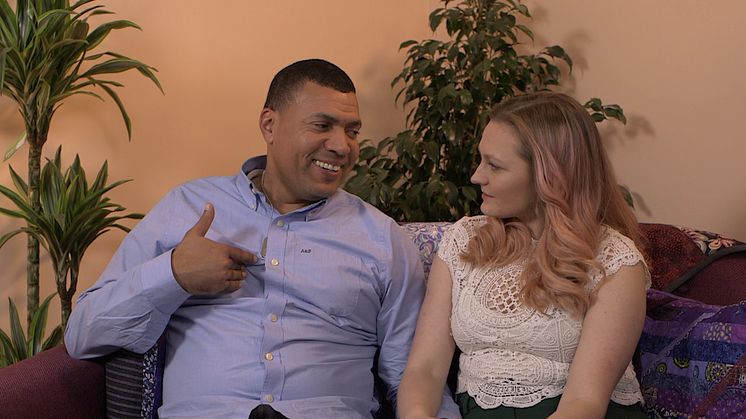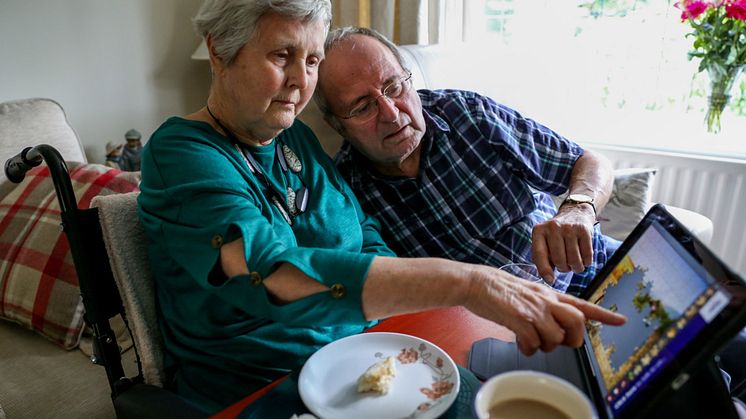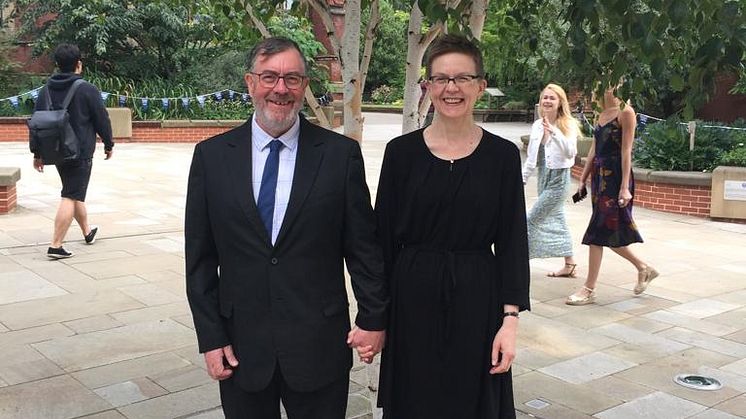
Press release -
Carers at breaking point: UK stroke carers go without vital support
One in five (19%) people caring for stroke survivors have not accessed any form of help after their lives were turned upside down overnight, according to new figures published today by the Stroke Association.
The charity has also found that 40% of stroke carers who had been caring for more than three years report feeling exhausted and around 1 in 3 stressed or anxious . Despite this, more than a third of people caring for stroke survivors (35%) receive no emotional support, with a devastating impact on their health and well-being.
There are currently over 1.2 million stroke survivors in the UK and this number is predicted to rise to 2.1 million in 2035. The charity is warning that stroke carers are coming under increasing pressure to manage their own daily needs while caring for their loved ones, and the situation is likely to get worse.
The Stroke Association’s Lived Experience report is the UK’s largest ever survey of people affected by stroke (i) with over 11,000 responses. The third chapter (of four), Caring for a stroke survivor: what carers need, reveals:
- Stroke carers are struggling to cope: almost half (47%) of the carers who did not have any support said that they were not offered any help, or did not know where to start.
- Stroke carers are feeling isolated: Over a quarter (27%) of carers said there were not enough support groups for them.
Grace Farquharson, 29 from Congleton, was newly married and looking forward to her future with her husband Finn, when he had a stroke in July 2017. He was just 43 and at work as a vascular radiologist at Manchester Royal Infirmary. Finn’s stroke left him with severe aphasia, which means he struggles to find his words, structure sentences and understand what is being said to him. Finn also had a second stroke two years later, however is recovering well.
A service manager for the NHS, Grace was juggling the pressure of a demanding job with caring for Finn after his stroke.
Grace said: “For a long time I was in denial about my role as Finn’s carer. He was able to do most things on his own such as washing, dressing, and eating; the kinds of things you typically associate with caring. I convinced myself that the increased burden I had taken on dealing with our finances, and acting as his personal assistant creating, rescheduling and taking him to appointments was merely me acting as his wife.
“Trying to balance all of that with a full time, high pressured job took its toll on me. Eventually I was failing at my caring duties because I was throwing myself into work to escape. With the daily commute I was away from the house from 7am until 7pm most days. By the time I got home I was exhausted and collapsed on the sofa. If Finn tried to talk to me I did my best to hold the conversation but most of the time I just couldn’t face it. The result of this was feelings of failure, isolation, loneliness, frustration, guilt and anxiety for both of us.”
Overwhelmed with anxiety at leaving Finn to go to work, Grace found it too much to cope with, and took a career break to help Finn with his recovery.
She adds: “Since Finn’s second stroke I can see the benefits from my increased presence at home. His mood has improved, his expressive speech has shown great improvements and he has been able to start new activities to help with his fitness and rehabilitation. More personally I have managed to regain control of my anxiety and depression. I didn’t realise how badly I had been suffering for the past 19 months until I took some time to look after myself and finally feel more ‘normal’. I haven’t felt this positive or happy in a long time.
“It was exhausting to just exist back then. I succumbed under a pressure that I had placed on myself. It’s unfortunate that I had to reach such a low place before I realised all of this but I am happy that it has forced me to refocus my priorities.
“Despite everything we lost we have managed to keep hold of each other. I think that what has happened to us both has made us stronger. Both as a couple and as individuals. I never really thought of myself as a strong person but there is no way I could have gotten through this without being so.”
Juliet Bouverie, Chief Executive of the Stroke Association, said: “Lives change in an instant after a stroke. Overnight, a partner becomes an unpaid carer. We know that thousands of people all over the UK are dedicating their lives to caring for loved ones, whose speech, independence, emotional wellbeing or personality could be affected after a stroke. And as these new figures show, over time, taking on the role of carers often comes at the cost of their own health. Sadly, far too many people are facing this devastating situation alone and unsupported.
“The number of stroke survivors is set to rise by almost one million people by 2035. So this problem is only set to get worse.”
The Lived Experience of Stroke report exposes the realities of living with stroke. The Stroke Association wants everyone affected by stroke to have access to the support that they need, when they need it. There are currently over 1.2 million stroke survivors in the UK, and over half (62%) of those surveyed said they had relied on the help of an unpaid carer at some point since their stroke. The findings also reveal that:
- Stroke carers are facing financial hardship: over a quarter (27%) of carers said they did not receive enough support on Carer’s Allowance/benefits.
- Caring for stroke survivors is not shared equally between women and men, with more women (68%) taking on the role of carer.
Juliet continues: “Carers need support, advice and information to help them balance caring while taking care of their own well-being. We need to make sure that every person who cares for a stroke survivor has the right emotional, financial and practical support in place. For example, every carer is entitled to a Carer’s Assessment(ii) from their local authority, to make sure they have the help and support they need.”
Emily Holzhausen OBE, Director of Policy and Public Affairs at Carers UK, said: “Suddenly taking on care for a family member who has experienced a stroke can be a whirlwind of change, with carers having to adapt quickly but often unaware of where to turn to for support.
“Enduring high levels of stress and exhaustion, many carers see their finances worsen and find it difficult to prioritise their own needs, continuing their caring role without support.
“Unpaid carers and the people they care for urgently need better quality support and access to services. The Government must deliver plans for social care reform that ensure carers get the practical and financial support they need to care without putting their lives on hold.”
The Stroke Association provides support and information for people who have been affected by stroke. We provide carers with information on how to request a carer’s assessment. We also offer Life After Stroke Grants for short breaks for carers and support through our Stroke Helpline (0303 3033 100), My Stroke Guide, Stroke Recovery Service and our education programme, Caring and You.
For more information visit: www.stroke.org.uk
For more information about the Lived Experience of Stroke report – Caring for a stroke survivor: what carers need - visit www.stroke.org.uk/livedexperience
Topics
- Stroke strikes every five minutes in the UK and it changes lives in an instant.
- The Stroke Association is a charity working across the UK to support people to rebuild their lives after stroke. We believe that everyone deserves to live the best life they can after stroke. From local support services and groups, to online information and support, anyone affected by stroke can visit stroke.org.uk or call our dedicated Stroke Helpline on 0303 3033 100 to find out about support available locally.
- Our specialist support, research and campaigning are only possible with the courage and determination of the stroke community and the generosity of our supporters. With more donations and support, we can help rebuild even more lives.
- You can follow us on Twitter, Facebook and Instagram.



